Detailed Analysis of Marketing and Advertising Law: Case Solutions
VerifiedAdded on 2020/04/21
|5
|798
|48
Homework Assignment
AI Summary
This document provides a detailed analysis of three case studies related to marketing and advertising law. The first case examines trademark infringement, focusing on the manufacturer's claim of ownership and potential consumer confusion. The second case delves into the concept of 'passing off' and misrepresentation, assessing whether one business created an impression of similarity with another. The third case explores remedies available to a German company against an Australian company for trademark infringement, false advertising, and deceptive marketing practices, including the use of similar branding and misleading claims about product origin and content. The analysis references relevant laws, including the Trade Marks Act 1995, intellectual property law, and the Australian Consumer Law (ACL), offering legal arguments and potential outcomes for each case, alongside a bibliography of relevant sources.
1 out of 5
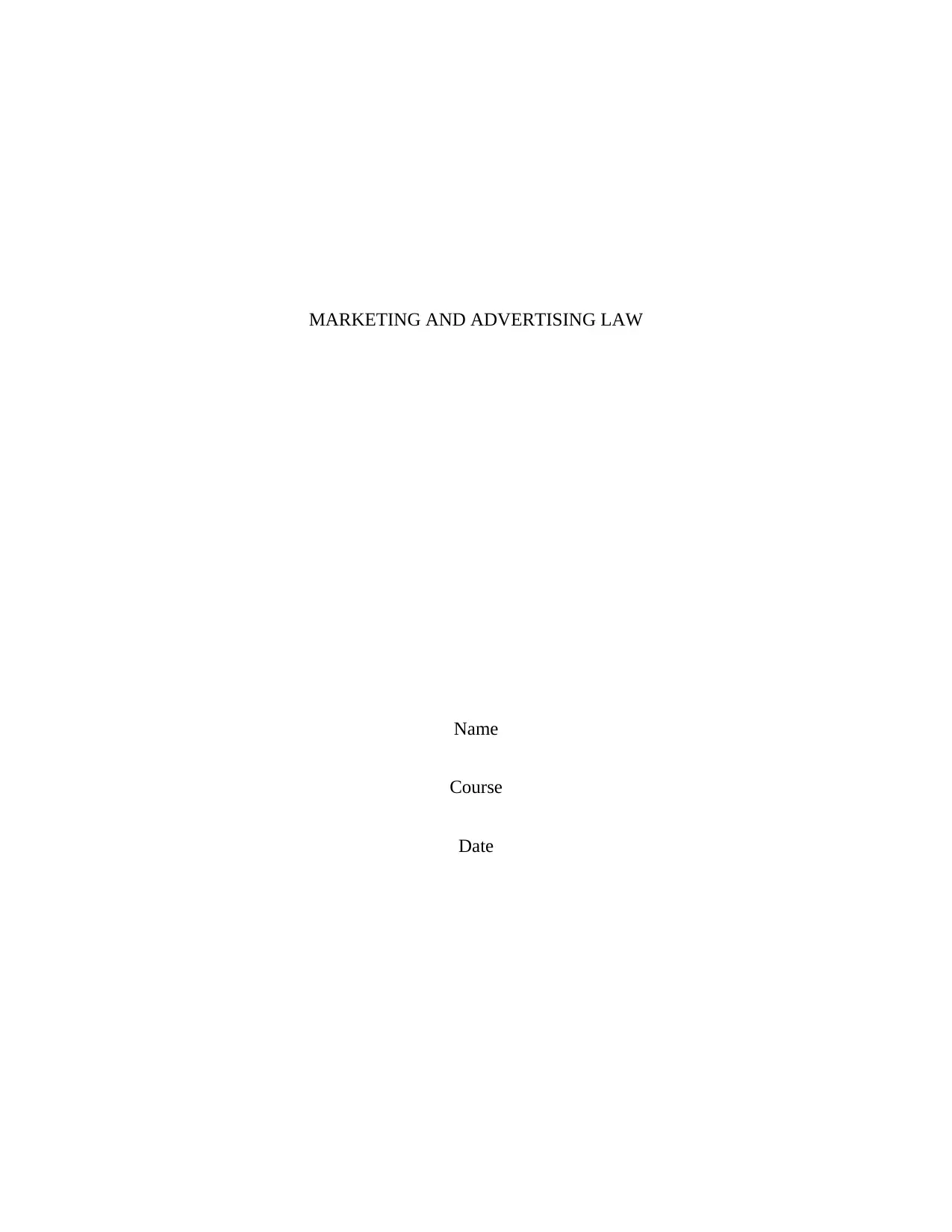
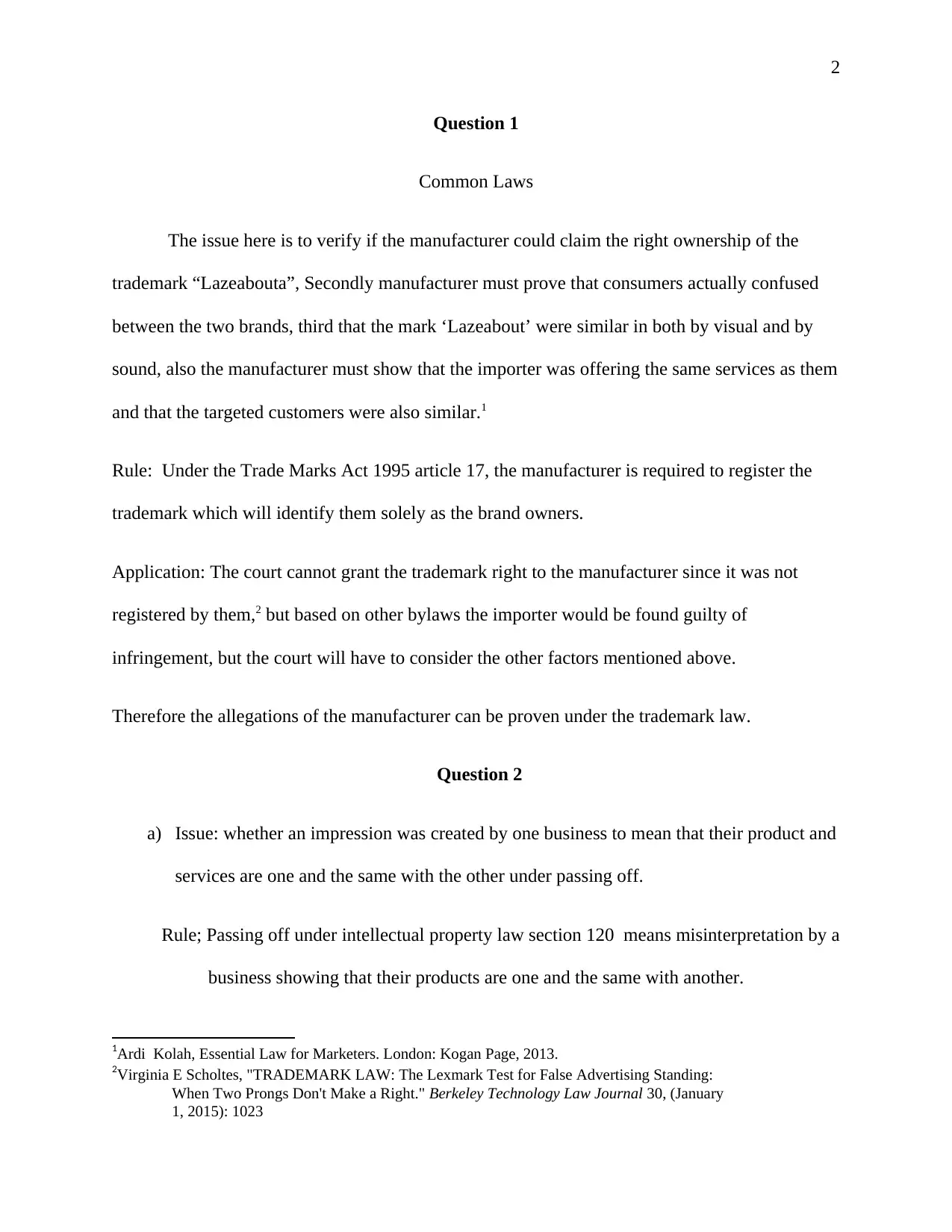
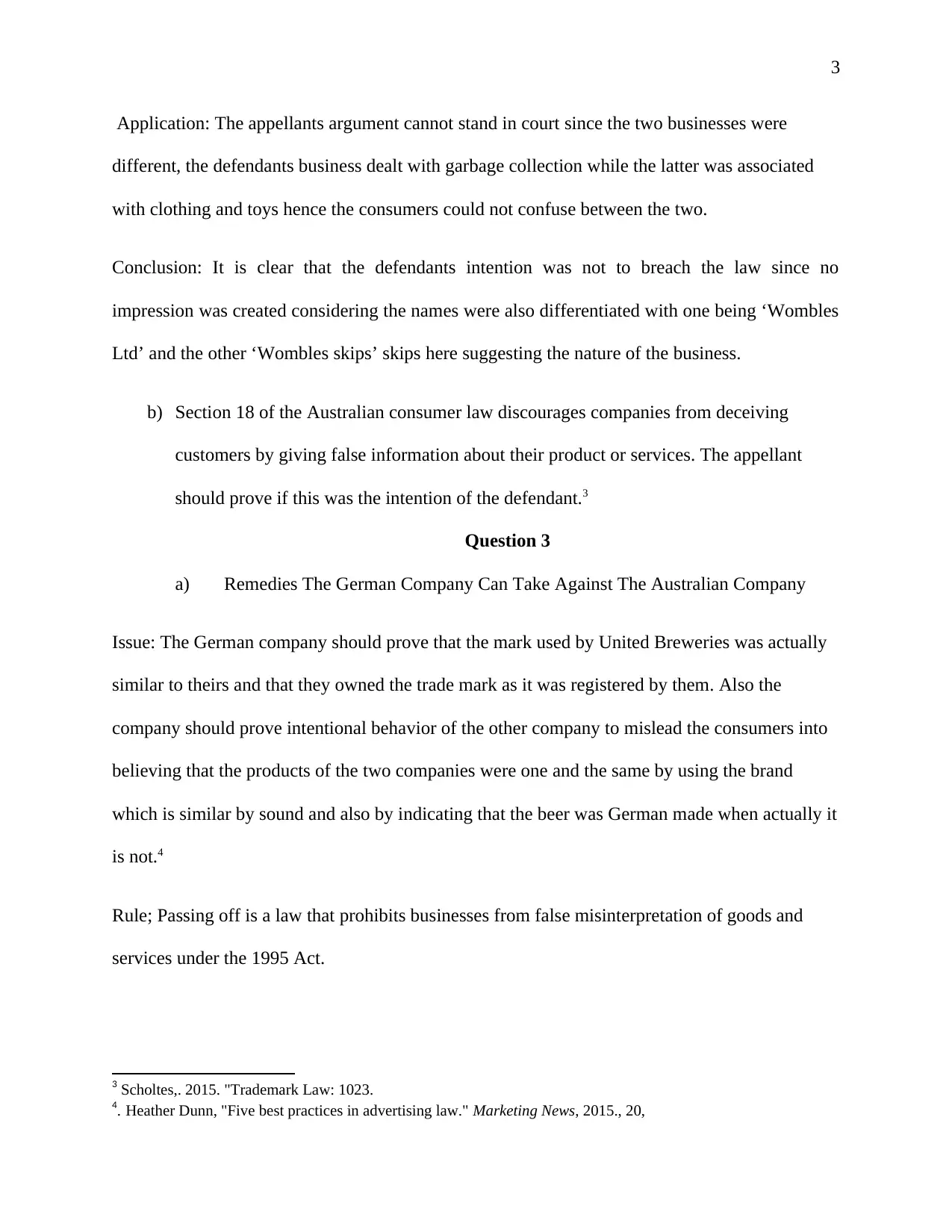

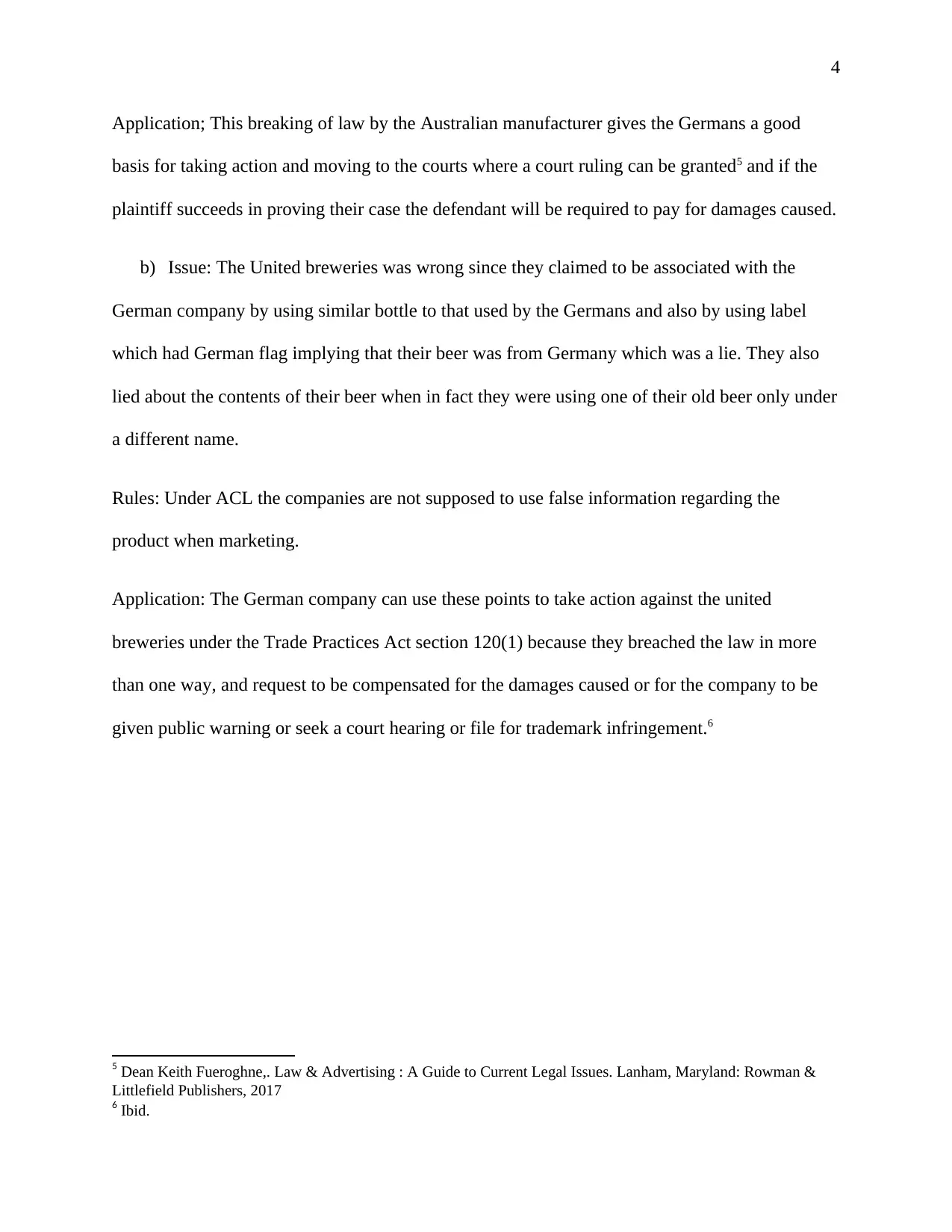
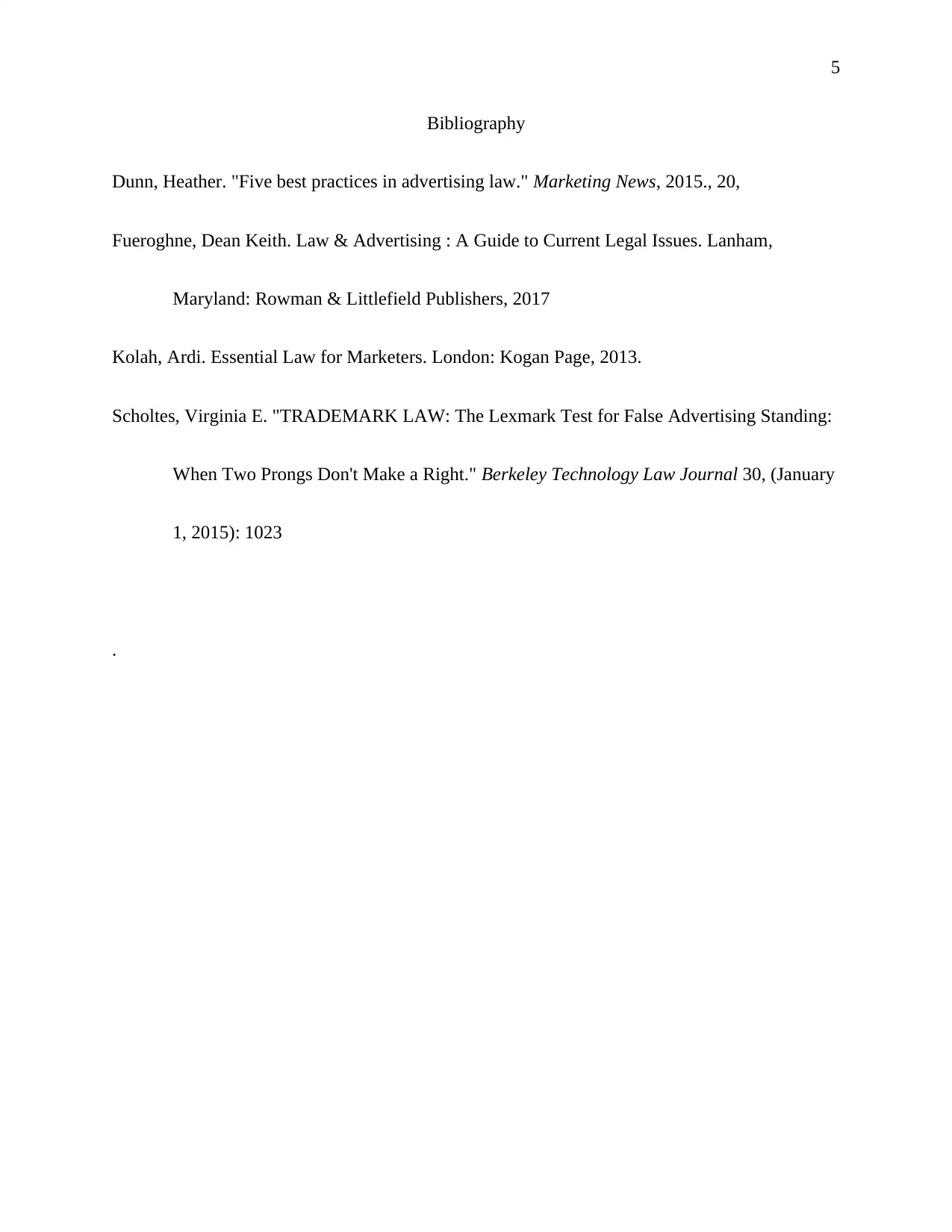






![[object Object]](/_next/static/media/star-bottom.7253800d.svg)